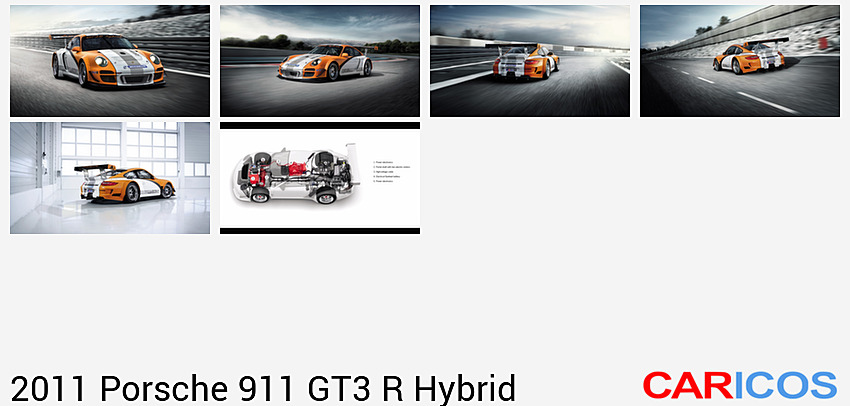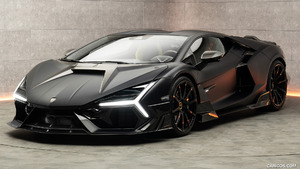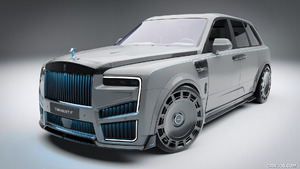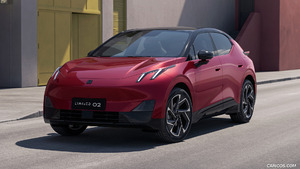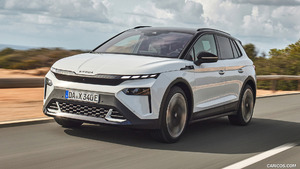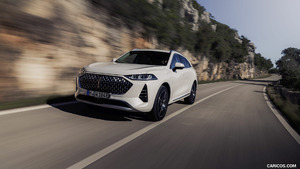911 GT3 R Hybrid
Porsche Intelligent Performance to make Race Cars even More Efficient
110 years after Ferdinand Porsche developed the world’s first hybrid, the Lohner-Porsche, Porsche engineers are now expanding this visionary drive concept with a production-based GT race car: Over the past 45 years, Porsche 911 race cars have recorded more than 20,000 victories and on March 4, a Porsche 911 GT3 featuring an innovative hybrid drive will make its debut at the Geneva Motor Show, opening a new chapter in the history of Porsche.
This innovative hybrid technology has been developed especially for racing, differentiating itself from conventional hybrid systems by way of its configuration and components. In the case of the 911 GT3 R Hybrid, the front axle features two electric motors, each developing 60 kW and supplement the 480 hp, naturally aspirated four-liter flat-six that drives the rear wheels. Instead of the heavy batteries usually found in a hybrid road car, an electrical flywheel power generator is installed inside next to the driver delivering energy to the electric motors.
The flywheel generator is also an electric motor, with its rotor spinning at speeds of up to 40,000 rpm while mechanically storing energy. The flywheel generator is charged whenever the driver applies the brakes, as the two front axle electric motors reverse their role and act as generators. Then, when accelerating out of a bend or while overtaking, the driver can use the extra energy from the charged flywheel generator, sending up to 120 kW of stored kinetic energy to the motors. This additional power is available after each charge for approximately six to eight seconds.
Energy formerly converted into heat upon each brake application, and therefore wasted, is now converted into additional drive power in a very efficient manner.
In addition to increasing available drive power, depending on racing conditions, the hybrid drive can also be called upon to save fuel. By increasing the efficiency and, accordingly, the performance of the 911 GT3 R Hybrid, reductions can be made to the weight of the fuel tank or the car can make less frequent pit stops, for example.
After its debut in Geneva, the 911 GT3 R Hybrid will be tested in long-distance races on the Nürburgring. The highlight of this test program will be the 24 Hours on the Nordschleife of Nürburgring, May 15-16, 2010. The focus is not on the 911 GT3 R Hybrid winning the race, but rather spearheading technology as a “racing lab.” The intent is to provide hands-on know-how for the subsequent use of hybrid technology in road-going sports cars.
The 911 GT3 R Hybrid is a perfect example of the Porsche Intelligent Performance philosophy, a principle to be found in every Porsche: More power on less fuel, more efficiency and lower CO2 emissions – on the track and on the road.

